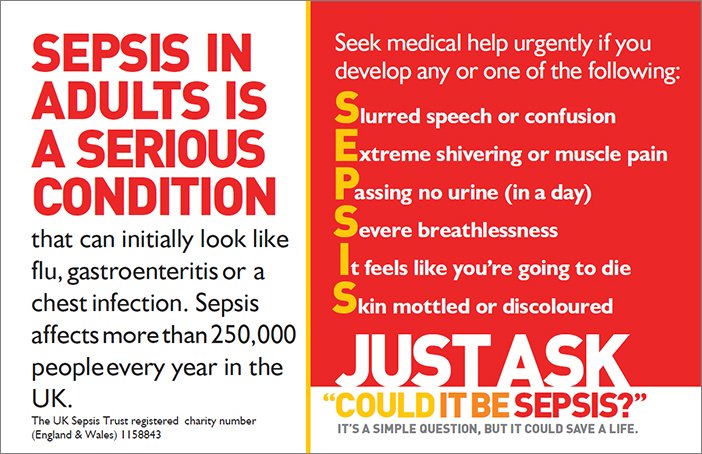September is Sepsis Awareness Month
If you’re one of the many people who avoids seeing a dentist unless you have a toothache, you may not realise your oral and dental health can have a significant impact on your overall health. In fact, an infection in your mouth can trigger sepsis, just as an infection in any other part of your body can.
Sepsis is the body’s life-threatening response to an infection, including dental infections. The most common forms of dental infections are tooth decay and gum disease, both of which can lead to abscesses (a painful swelling filled with pus). Dental work, oral surgery and injuries to teeth can also put patients at risk of infection.
As with all infections, an infection in your mouth should be treated as quickly as possible to reduce the risk of complications. Left untreated, a dental infection could lead to sepsis.
If you or anyone you know has any of the following signs or symptoms, please seek urgent medical assistance:
• a high temperature (fever) or low body temperature
• chills and shivering
• a fast heartbeat
• fast breathing
• feeling dizzy or faint
• a change in mental state – such as confusion or disorientation
• diarrhoea
• nausea and vomiting
• slurred speech
• severe muscle pain
• severe breathlessness
• less urine production than normal – for example, not urinating for a day
• cold, clammy and pale or mottled skin
• loss of consciousness.
Worldwide, one-third of people who develop sepsis die. Many who do survive are left with life-changing effects, such as post-traumatic stress disorder (PTSD), chronic pain and fatigue, organ dysfunction, and/or amputations.
Take the time to know the signs and you could save a life.

 Priory Dental Care
Priory Dental Care